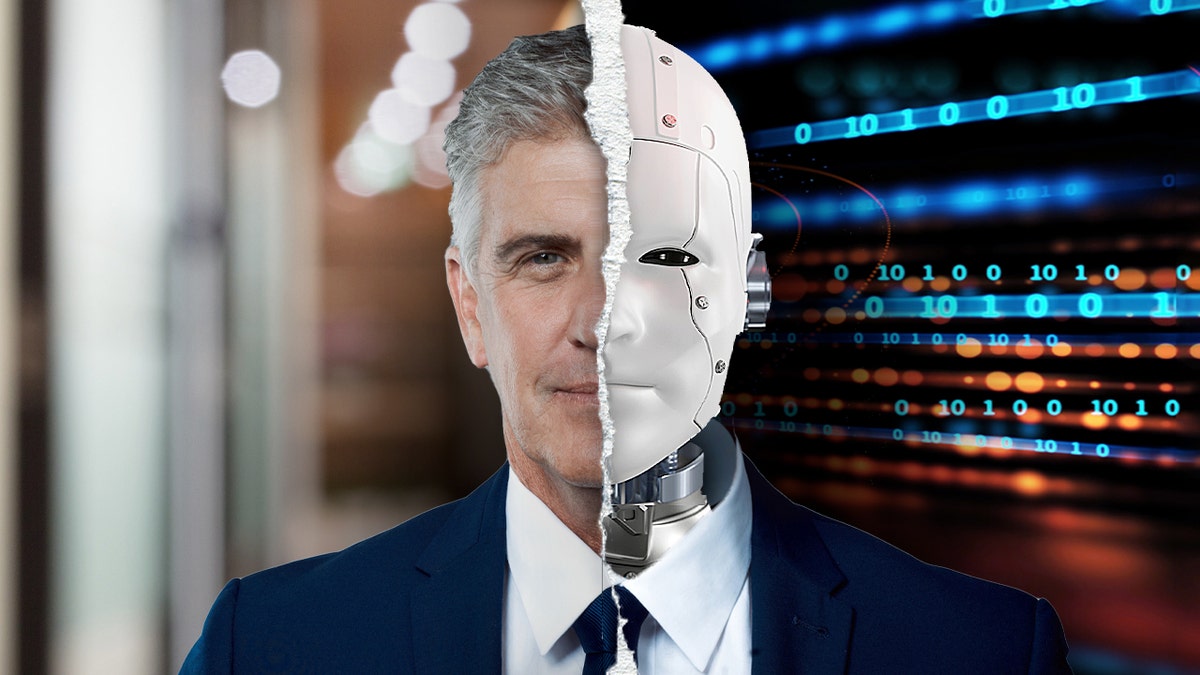UK Defense chief on how AI can strengthen vital security alliance
British Secretary of State for Defense spoke with Fox News Digital about the way the AUKUS alliance looks to integrate AI, highlighting it as a key feature of the containment approach to China's regional ambitions.
In the late ’90s through the year 2000, people thought that the arrival of the internet was the end of the world. People believed they would be outmatched, out of jobs or that the world and economy would collapse as they knew it.
If you asked someone then for their advice on picking a major or a future career, you might have gotten answers from "get a job in computers — it’s the future" to "call it quits, everything is going to change anyway."
This wasn’t the last time people made grim predictions in the face of a new technology.
RESEARCHERS USE AI TO DECIPHER ANCIENT ROMAN TEXTS CARBONIZED IN DEADLY MOUNT VESUVIUS ERUPTION
Today, people don’t know what to think about artificial intelligence or what the next few years will look like. The consensus from popular opinion is that the future is bleak. The International Monetary Fund (IMF) found that 60% of U.S. jobs will be exposed to AI and half of those jobs will be negatively affected by it.

Artificial intelligence will impact at least 60% of jobs, but whether it will be positive or negative might be up to workers. (istock)
So, what should college students do about this? Are there any degree or career paths that would better set them up for success, or are our students going to see their degrees slowly become obsolete in the next decade?
In 1995, Cliff Stoll of Newsweek wrote that through the internet, "We’re promised instant catalog shopping — just point and click for great deals. We’ll order airline tickets over the network, make restaurant reservations and negotiate sales contracts. Stores will become obsolete."
Stoll feared that the coming of the internet would herald the end of in-person shopping and customer service, and as a result, lead to the loss of millions of jobs.
In the third quarter of 2023, the United States Census Bureau estimated a staggering $271.7 billion in online retail sales. However, that only accounted for 14.9% of all retail sales in the U.S. for the same period.
That percentage continues to grow each year. However, that’s hardly rendering in-person stores obsolete, and it’s certainly a long way from completely wiping out in-store shopping as we know it.
Can we say with certainty that this will be the case for the estimated negative effects on the 30% of U.S. jobs? No. But we can see how prominent technological developments don’t annihilate our way of life. They change it.
Businesses didn’t go bankrupt over the last quarter of a century — they thrived. Companies found a way to adapt to the new technology and harnessed it to create new streams of revenue and supplement what might have been lost from the in-shopping experience.
What’s the lesson here? As we look forward to an uncertain future with AI, we need to encourage our students to stay adaptable.
CLICK HERE FOR MORE FOX NEWS OPINION
By viewing AI as a potential tool and opportunity for growth, our students can open themselves up to new possibilities and opportunities for learning, both inside and outside the classroom.
The IMF went on to say that while 30% of U.S. jobs could be negatively affected, the other 30% exposed to AI "could benefit from enhanced productivity through AI integration."
Businesses didn’t go bankrupt over the last quarter of a century — they thrived. Companies found a way to adapt to the new technology and harnessed it to create new streams of revenue and supplement what might have been lost from the in-shopping experience.
As the percentage of online sales continues to grow, so do the companies’ profits. Had these major corporations completely ignored the internet as a viable tool for making sales, they might not have seen such an increase. We need to keep this in mind as we look at AI.
CLICK HERE TO GET THE FOX NEWS APP
We must remind ourselves and our students that AI is not the end of the world as we know it: it’s a tool, like the internet. By using it, we open ourselves up to new possibilities and increases we might not have thought feasible.
Imagine if instead of being replaced by AI, America’s jobs are supplemented by it, and can reach new heights of productivity, efficiency and income, more than ever before. Let’s focus on encouraging our students to look forward to that future, and see how they can change it themselves.












































